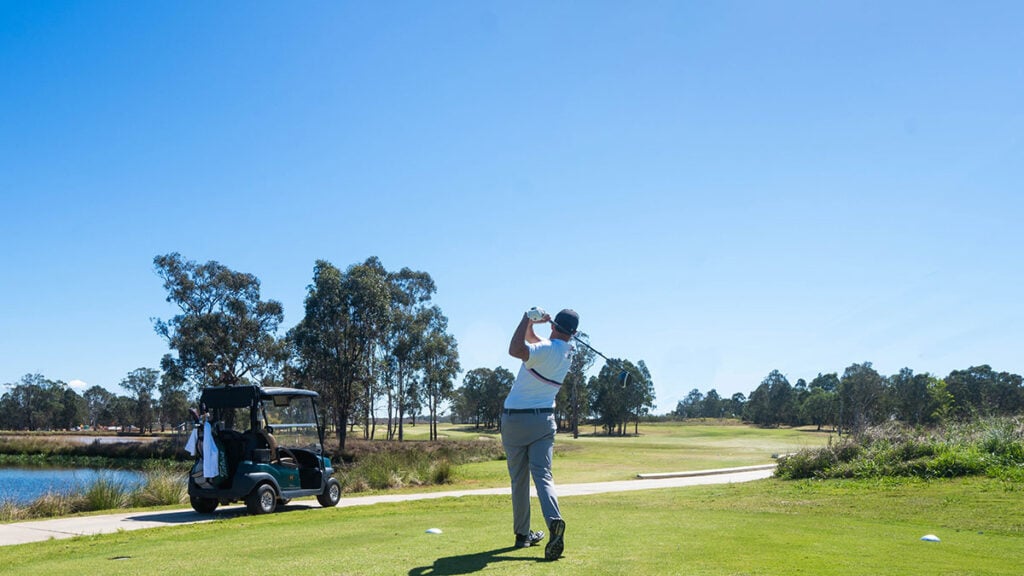I don’t think it’s fair to name names, so all I’ll say is, there’s a player, a guy who had a great rookie season last year, who might not have ever made it to the US PGA Tour if not for financial assistance from another player. He was on the mini-tours and out of money when a veteran gave him 15 grand to keep going. Enough to keep entering tournaments and eat something other than fast-food.
Whether it was because the veteran believed in his talent, or because they’re from the same home state, who knows? All I know is, the first time they were paired together, playing for real money on TV, the handful of us who were aware of the story recognised how unique it was. Most players don’t spread wealth down the system. Generally, the view out here is, everyone is on his own journey. If you’ve got game, it will work out. And if you do help another golfer, you should consider it a loan that will never be paid back. Which is hard, because it’s your buddy, and you want to believe him when he says, “Yeah, bro, hittin’ it great; just need to see a few more putts drop.” But deep down you can’t. And because you probably haven’t set a payoff date or any real terms, neither one of you has any idea how to behave, how to fulfill your obligation as lender or debtor. Despite the friendliest intentions, all it takes is one of you feeling awkward before you end up avoiding each other.
I’m always happy to pick up the phone to get people out on courses, take groups to dinner and that sort of thing. But I’ve only lent hard cash to three individuals who were pursuing playing careers. As each left the game, we inevitably fell out of touch. Money changes relationships.
When a guy makes it to the next level, he might be leaving behind a couple of roommates who are still driving range-pickers and filling divots in exchange for practise time. The friendships I formed in college golf and development tours are some of the closest I’ve ever known. It’s a weird balance. You’ve got no shot of playing pro unless you can afford to be 100 percent, entirely committed to golf. At the same time, you’ve got to have the stones to perform when your living depends on it. Mini-tours sort that out pretty efficiently. If a friend asks me for money, I know it will feel nice to give it to him. But it’s probably in both our best interests if I don’t.
Everybody knows exactly how much I make. At least it feels that way. Obviously, our purse results are published, but I’m always meeting people whose guesses of what I pull down for a certain endorsement or outing are surprisingly spot on. (Hint: prizemoney was the majority of my income last year, but not by much.) And when people know what you have, they want it. That’s human nature, right?
After I first won, I must’ve had a dozen people approach me with investment ideas. My cousin’s friend wanted to open a restaurant. The brother of a guy I played golf with had a plan to develop some real estate. This one knucklehead, who was sort of a friend in high school, wanted to start a T-shirt company. Virtually none had anything close to resembling a business plan. I invested a little in the real-estate project, which fizzled. No one likes bragging about losses, but I bet if you asked around the locker room, most guys have thrown money into at least one flimsy scheme.
As much as my first instinct is to help someone who’s struggling – because sometimes even I can’t believe how much money I make – I tell myself to sleep on it. When I wake up, I’m going to realise it’s not a smart idea.
– with Max Adler




